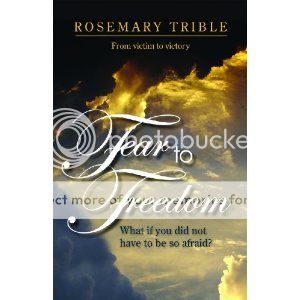
Recently, writing about the terrible scandals of the church and the need for the hierarchy (and others) to do penance, I added:
The fullness of healing, of course, can only come when the victims finally feel capable of saying “I forgive you…” That moment -which cannot be compelled and does not mean forgetting- is the moment when a victim takes his life back. When a victim says, “I forgive you,” she confers her own power over the entire situation, and controls it. It is transformative; it brings a victim into his or her Royal Priesthood.
Forgiveness, I have learned, is essential to healing; without it one is held in a stagnant pool of misery. Forgiving is how you reclaim yourself and move on. Until you can forgive, the incident -whatever it is- owns you.
It seems to me that sometimes we need to forgive more than once, too. Sometimes a wound is so deep, or so tender, that the forgiveness becomes incremental, until the healing is complete:
Maybe once we have given in to the poison and power of resentment, allowed it to seep into our sinews and viscera, forgiveness has to be administered like a therapeutic treatment “reapply as needed.”
Over at Catholic Online, Jennifer Hartline tells a harrowing story that comes to a remarkable conclusion:
In 1975, as a young new wife with her own local television talk show and a husband on the verge of a political career, Rosemary Trible was viciously raped at gunpoint. A man whose face she never saw had brutally violated her body and her life, and as she says, stole her joy. Fear to Freedom is her amazing story of getting that joy back – and then some.

Don’t be too quick to assume this book is only relevant to those who’ve suffered sexual assault. That would be a big mistake. This is not a book about rape; this is an unshakable testimony to the life-changing power of forgiveness, and the awesomeness of God’s love.
In Corrie Ten Boom’s Book The Hiding Place, she writes of meeting a German soldier after the war, one who was seeking his way through the darkness of that period and into the light. After hearing Ten Boom speak of Christ, the former soldier extended his hand to her, and Ten Boom, who had suffered a cruel imprisonment and the loss of much of her family, for the crime of hiding Jews in Holland, found herself unable to take it; she had to pray for God’s help in forgiving the man and seeing him as more than an enemy or an agent of chaotic pain, but a flawed, wounded created creature, himself loved into being. Through prayer, she found herself able to extend her hand, and to forgive, and that was part of her healing, too.
Rosemary Trible went beyond the extended hand. Writes Hartline:
She prayed, “Lord, I forgive the man who raped me. And I will pray every day for the rest of my life that someone will tell him about Jesus and that I’ll spend eternity with him.” She took a step beyond mere release into love – love for her enemy! She made her own great sacrifice of selfless love for the very person who rightfully deserved her contempt and condemnation. In doing so, she realized as never before that “forgiveness is the greatest power on earth next to love.” She said to me, “When you pray for someone every day, you just can’t hate them anymore.”
There is a good deal more to the story, and it almost pierces the veil. It reminds me a little of how St. Therese of Lisieux took it upon herself to pray for the spirit of a convinced murderer, and how that ended, except Trible’s story’s ending might be even more intriguing and enlightening.
What she learned about forgiveness is for every one of us. Next to love, forgiveness is the greatest power on earth. When we forgive, the power of God is loosed in the life of our offender, to work eternal transformations. We not only set ourselves free, but we free the one who hurt us to be changed by the force of God’s perfect love.
In his Holy Rule, St. Benedict speaks of a “conversion of manner,” which is not about manners but about turning perspectives topsy-turvy, doing what seems to go against all instinct, and against all sense, in order to give God room to work. It seems to me Rosemary Trible has gone very far in this discipline.
Fear to Freedom sounds terrific.
This book does too.
Related:
Immaculée Ilibagiza on Forgiveness
Resentment, Poison and Prayer











